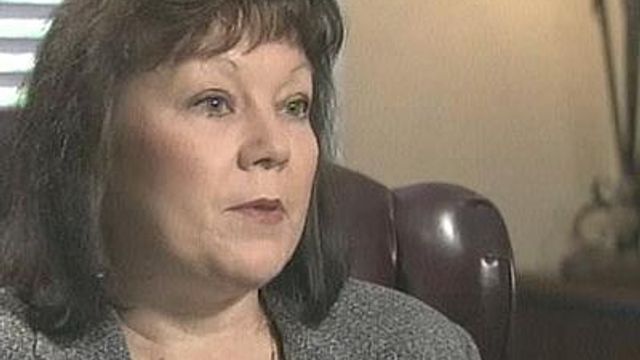Local News
Foreclosures can be hard on real estate agents, too
Losing a home to foreclosure can be a homeowner's nightmare, and it can often be a nightmare for realtor Kathy Wood, who says she has the necessary but difficult job of selling foreclosed homes.
Posted — UpdatedBUIES CREEK, N.C. — Losing a home to foreclosure can be a homeowner's nightmare, and it can often be a nightmare for realtor Kathy Wood, who says she has the necessary but difficult job of selling foreclosed homes.
"I've had people pull guns. I've had people open the door and let their big dogs out on me," Wood, also known as "The Repo Queen," says. "They're very angry."
Once defeated by the bank, some families leave willingly. Others are evicted.
Wood says she has also seen homeowners damage their property, leaving the bank with expensive repairs. And Harnett County authorities are investigating a case of suspected arson at one house that was gutted by fire shortly after the owners were notified of foreclosure.
"They just can't make ends meet," Wood says. "Giving up the house and moving out is a lot easier than losing everything else."
One in every 1,600 homes in North Carolina is in some state of foreclosure. As of Sept. 30, 41,932 homes and businesses have entered into foreclosure, according to the North Carolina Administrative Office of the Courts.
Mecklenburg, Wake, Guilford, Forsyth and Cumberland counties top the list with a combined total of 16,289. In Harnett County, where Wood works, there have been 474 this year.
Wood has sold 91 foreclosed homes, and since the bank bailout, she says she has averaged four new listings – from both low- and high-income groups a week.
She says she has seen some heartbreaking situations and can't help but feel their pain.
"A man had paid 27 years on his mortgage. He had three years left," Wood says. "He had brain cancer. He lost his home with three years left on his mortgage."
In another instance, Wood says, children met her at the door begging for food.
"When the banks are calling, they don't know those children are sitting there starving to death."
For Wood, facing the families is a double-edged sword. It's how she earns her living. But she never knows what she'll find when she knocks on the door.
"Buying a home is an emotional thing," Wood said. "It's part of you."
But homeowners facing foreclosure can often save their homes. Those who lose their jobs through no fault of their own can get assistance from the North Carolina Housing Finance Agency.
And if all else fails, some banks will pay up to $2,500 to help relocate homeowners who leave the property willingly.
The banks Wood works with are willing to work with borrowers as long as they make arrangements before the courthouse sale has occurred.
"Borrowers must do something while they are receiving past-due notices," Wood says. "The bank will do a repayment, allowing the payment to be tacked on the end, or just a catch-up – allow them to make a little each month of the past-due amount."
Wood recommends borrowers facing a threat of foreclosure make direct contact with the seller's attorney and not wait for their own attorney to do it for them.
"Time is key to saving their homes and working out arrangements with the banks," she says. "They can't wait until the deputy or agents knock on their door."
"At that time, it is usually too late, unless they have the money to do a complete catch-up on the loan."
• Credits
Copyright 2024 by Capitol Broadcasting Company. All rights reserved. This material may not be published, broadcast, rewritten or redistributed.






